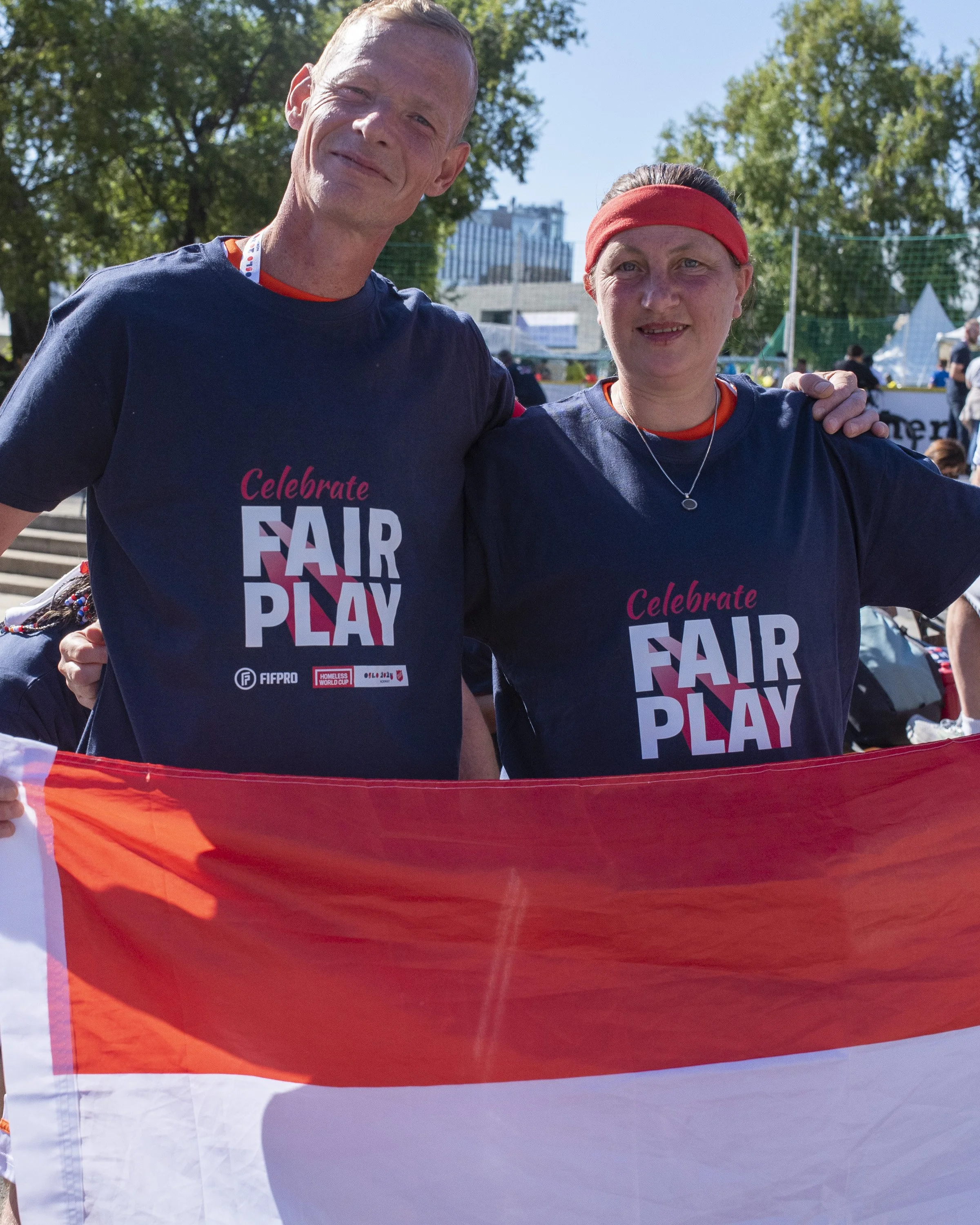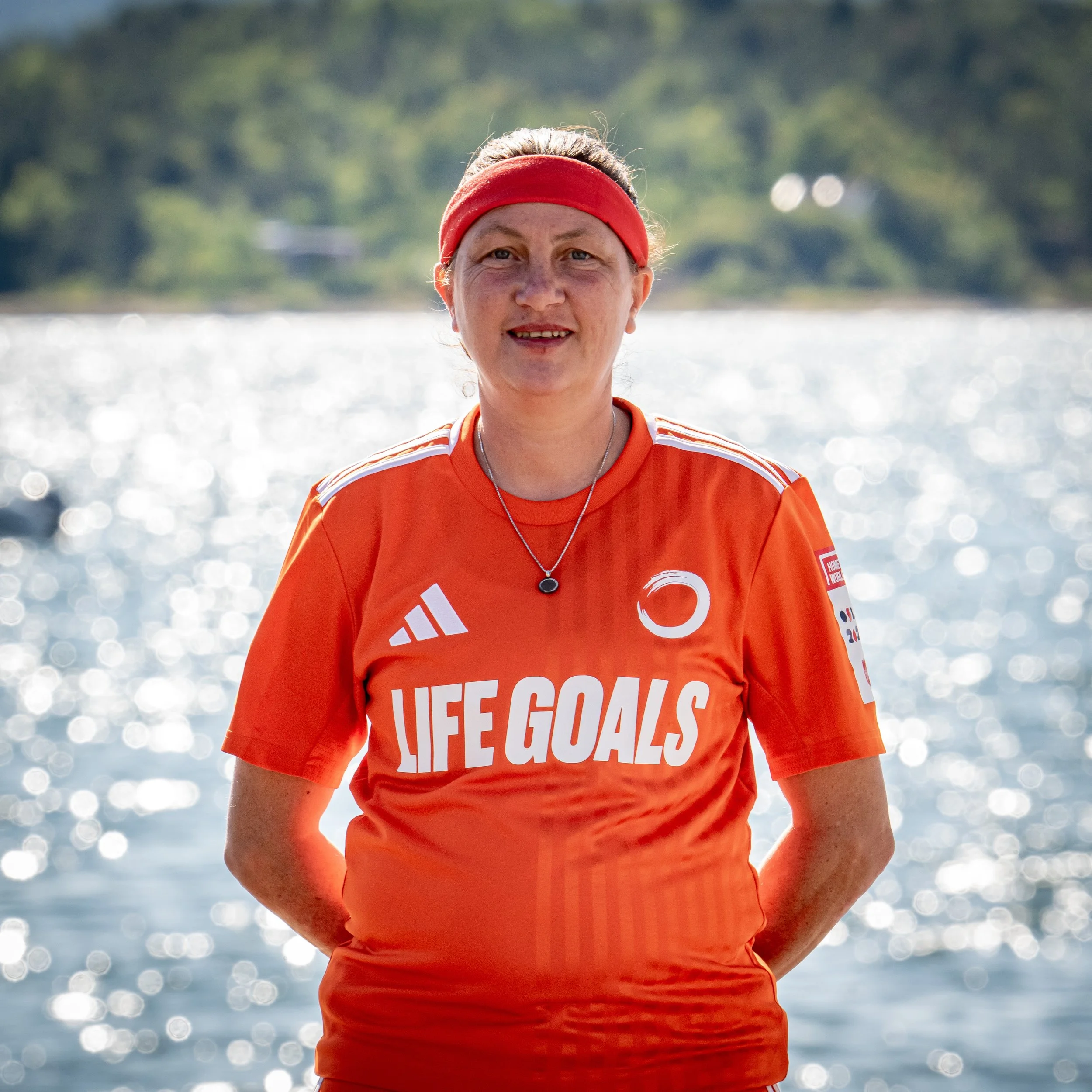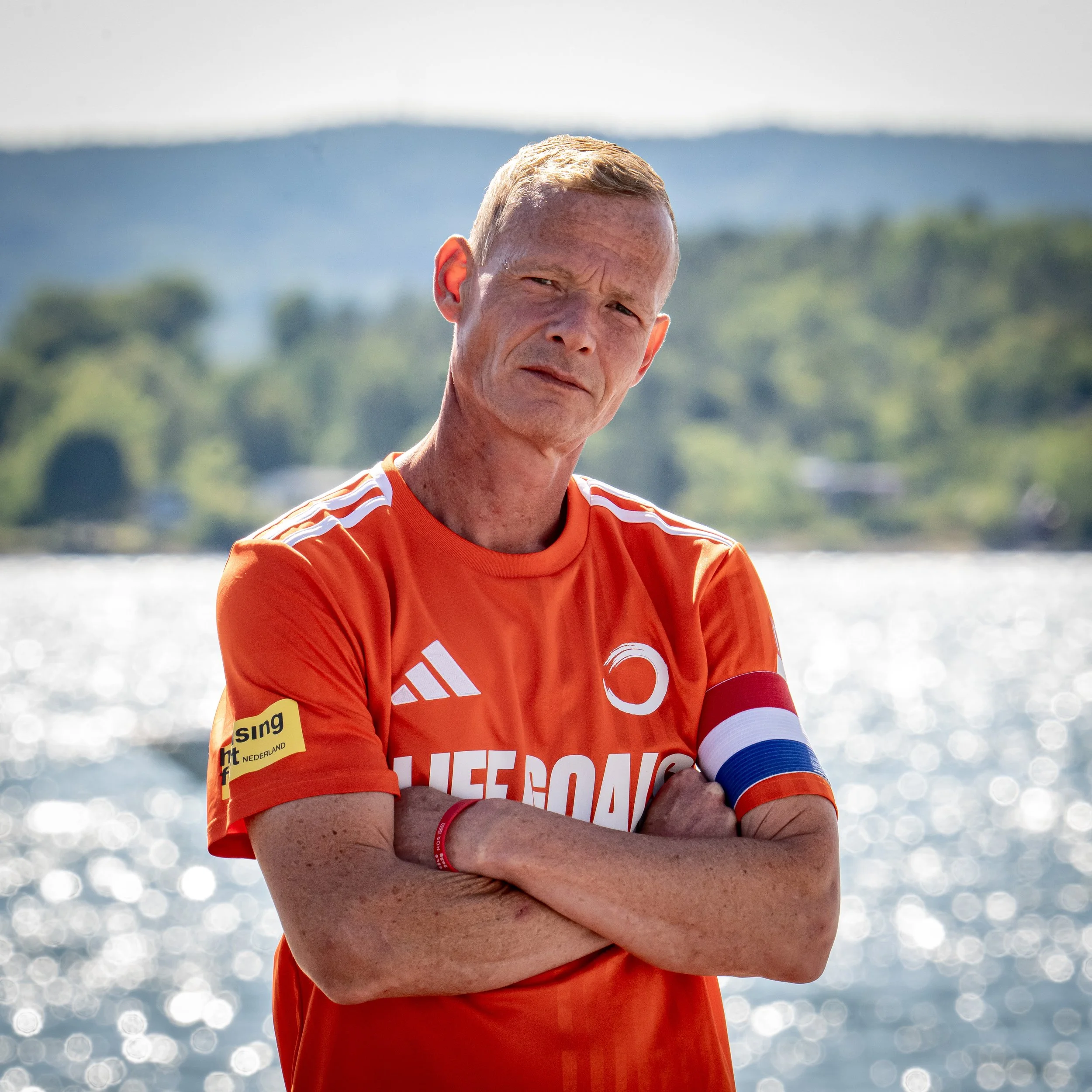Football as a way to feel emotions
The 500 players taking part in the Homeless World Cup bring 500 unique experiences, and 500 life paths. For many players, sharing their own story with the world is an important part of their journey. Dutch players Liesbeth Vogelaar and Stefan Beerkens hope that – by sharing how football helped them through dark days – they might inspire others to play the beautiful game.
Liesbeth (47)
Friday is Dutchwoman Liesbeth Vogelaar’s favourite day of the week. That is when she packs her football boots and hops on the train for a 120 kilometre roundtrip from her hometown of Dordrecht to Utrecht. Her club is called ‘Sports for a Future’ (Sport voor een Toekomst, S.v.e.T.) – a fitting name that describes her own motivation.
Liesbeth’s first introduction to football was in primary school, where she played in school tournaments. She would watch international football on TV and wondering what it would be like to represent your country. A sporty child, Liesbeth also did karate and even earned a black belt, but it was football that really got her interest.
It is a passion that remained into adulthood, and one Liesbeth has returned to whenever times were tough. Traumatic events in childhood and adulthood have had a huge impact on her life. She suffered violence and sexual abuse from a young age and has spent the past seven years trying to work through the trauma caused by it, and deal with the intensity of the legal process to try and get justice. PTSD therapy has helped her, as well as the unconditional love from her dog. And, of course, football.
When the opportunity arose to start playing weekly sessions, Liesbeth didn’t hesitate to pull a group of players together and start training. When she had a spare hour, she would go to the library to find books about football. One day, a supportive librarian ordered her a book about football training techniques. “I used it to understand how I could improve my game and help the others too”, Liesbeth says.
Her game started improving, and so did her mental health. “Football helps me to be in touch with all my emotions”, she explains. “As soon as I get on to the pitch, it is like I come home within myself. Football brings out sadness, frustration, excitement and pure happiness. I am still working on regulating my emotions, but I can feel them all now, and express them too.”
Being asked to represent her country in Oslo is a dream come true for Liesbeth. She is very proud to wear the orange jersey and has already scored several goals. “It is a lot to take in and I get overstimulated sometimes. I am practicing to speak to people I don’t know. We don’t even speak the same language but that doesn’t matter. I looked in some of the girls’ eyes and we had an understanding. We know what we’ve been through. And we are all here.”
Stefan Beerkens (47)
Stefan Beerkens was just six years old when he joined his first home town football team in the south of the Netherlands. He had talent and the drive and always made the first team. When he was a teenager, things changed. The divorce of his parents when Stefan was 16 “derailed” him, he says.
“I went downhill really quickly. I had wanted to do a sports degree but didn’t get in, and then I got a letter for military service. I went for it, but that was a mistake. I was only 17 and was stationed far from home, with people who didn’t want to be there, drug dealers and all sorts.”
“At the same time, I didn’t want to be home, because my mother had a new partner, and my dad told me I had to choose between him and my mum, which I couldn’t. I slept here, there and everywhere and started using weed, and then selling it too. The guys I worked for offered me a place to stay, and I got deeper and deeper into that world.”
Eventually, the police caught up with Stefan and he ended up in prison twice. The first time was ten months, but as soon as he got out, he went back to selling drugs. “In prison, I met guys who did things more professionally. I felt looked after, and didn’t realise I was just a delivery boy to them. My older brother and mother tried to get me out, but they couldn’t reach me anymore. I was surviving in a different world.”
The second jail term changed things for Stefan. “I came out at the end of 2009 and my brother offered me to stay with him. Eventually, it got too much and I decided to move to Utrecht. There, I got a place in a homeless shelter and decided: I am going to use this to change my life around.”
He volunteered in the shelter, which led to being offered a paid job, which he has held for ten years. He also was invited to play in the Sports for a Future (Sport voor een Toekomst, S.v.e.T.) football team.
Staying on the straight and narrow wasn’t easy: it meant dealing with old debt, fines and paperwork, and starting again in a new place. Things were looking up when Stefan met his partner and his daughter was born. “I was still fleeing back to old habits, like smoking weed, to escape from everything I felt. But I knew I never wanted to go back to crime”, he says.
Instead, Stefan kept working on a better future. He would like to build a career as a neighbourhood sports coach. “With my life experiences, I hope I can motivate others who are in a place where I used to be.”
In Oslo he was awarded the team captain role. “I used to be tough on and off the pitch, but that has changed. In life and in football, I have learned to look at things from a positive side.”
Written By Danielle Batist, Photos By Donnie Nicholson & Anita Milas



